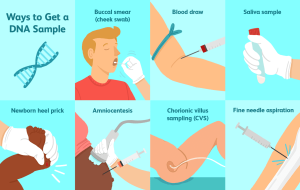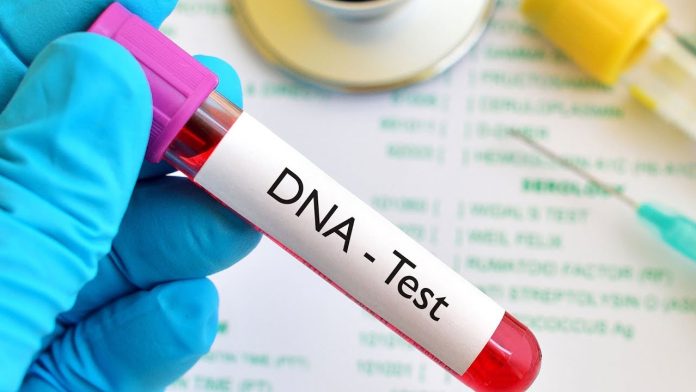Paternity fraud is a troubling portrait of societal norms and ethical values. The distressing aspect of paternity fraud lies not only in the breach of trust between partners, but also in the profound impact it has on the innocent children caught in the web of deceit amidst of such revelations.
The emotional turmoil and identity crisis faced by those who discover that their presumed father is not their biological progenitor are profound and disheartening. Every individual has the intrinsic right to know their true origins and each revelation of paternity discrepancies underscores the fundamental human need for truth and authenticity in understanding one’s origins, self-perception, and shaping one’s identity.

Calls for mandatory DNA testing at birth have emerged as a potential solution to mitigate the pervasive impact of paternity fraud and ensure the right to genetic knowledge and identity. The multifaceted nature of paternity issue, encompassing moral, scientific, and legal dimensions, underscores the complexity and urgency of addressing this societal challenge.
paternity discrepancies underscores the fundamental human need for truth and authenticity in understanding one’s origins, self-perception, and shaping one’s identity
Traditional methods of determining paternity based on acknowledgment, presumption, or subjective identification by mothers or alleged fathers are no longer adequate in an era marked by technological advancements. Such outdated customs and presumptions may not accurately reflect biological realities.
A more robust and objective approach to paternity testing and evolving ethical standards can serve as a vital step towards enhancing the accuracy and reliability of paternity determinations, thereby safeguarding the rights and well-being of all individuals involved. Ultimately, the discourse on paternity fraud in Nigeria transcends individual cases to reflect broader societal narratives around trust, accountability, and the sanctity of familial relationships.
As we confront the implications of these revelations, it becomes evident that the quest for truth and genetic authenticity is not merely a personal matter but a collective reflection of our values and responsibilities as a society.
the discourse on paternity fraud in Nigeria transcends individual cases to reflect broader societal narratives around trust, accountability, and the sanctity of familial relationships
The truth regarding negative paternity tests transcends mere accusations of infidelity against women, revealing a much more complex narrative ingrained in societal norms and human behavior. Within the Nigerian healthcare system, disturbing incidents of child swapping and child sales have surfaced, leading to erroneous paternity test results and casting a shadow of doubt on mother’s fidelity.
Women unfairly bear the brunt of suspicion and judgment when DNA testing fails to establish genetic connections between alleged fathers and their children, plunging them into the depths of marital disgrace.
It is noteworthy that a significant number of first-born children are affected by negative paternity test results, hinting at fundamental issues such as premarital pregnancies forced upon men or early-stage marital infidelity. The establishment of paternity through DNA analysis not only confers legal rights and responsibilities upon fathers but also plays a crucial role in upholding the integrity of familial relationships.
the quest for truth and genetic authenticity is not merely a personal matter but a collective reflection of our values and responsibilities as a society
Challenging stereotypes and bias prevalent in Nigeria’s patriarchal society, it is vital to acknowledge that infidelity is not a one-sided affair confined to women. Men, too, are culpable of engaging in extramarital affairs, often escaping reprimand for their actions. By focusing solely on women’s transgressions, society perpetuates a patriarchal double standard that overlooks the shared responsibility of both genders in maintaining fidelity within relationships.
In the contemporary landscape characterized by the rise of the “Baby Mama” phenomenon, an increasing number of young women opt to have children outside of wedlock, concealing the paternity of their offspring from fathers. This trend, if left unaddressed, poses a threat to the fabric of society, potentially leading to a surge in single-parent households with inherent behavioral challenges.
As we navigate these societal shifts, a deeper examination of these dynamics is warranted to foster a more equitable and understanding environment for all individuals involved.
Within the Nigerian healthcare system, disturbing incidents of child swapping and child sales have led to erroneous paternity test results, casting a shadow of doubt on mother’s fidelity
In conclusion, paternity fraud serves as a poignant reminder of the complexities inherent in familial relationships and the importance of upholding truth, integrity, and justice in matters of paternity.
By addressing this issue through a multifaceted lens encompassing religious, moral, scientific, and legal considerations, society can take significant strides towards fostering transparency, accountability, and respect for individual rights in paternity determinations.
God is with us!
- Prof. Chiwuike Uba is Chairman, Board of Trustees, Amaka Chiwuike-Uba Foundation (ACUF). He is an Economist, Certified Public Accountant/Financial Management, and Public Policy Analyst.


